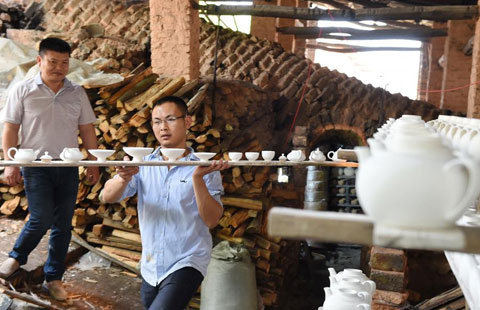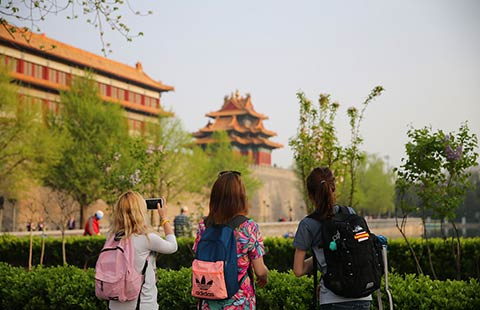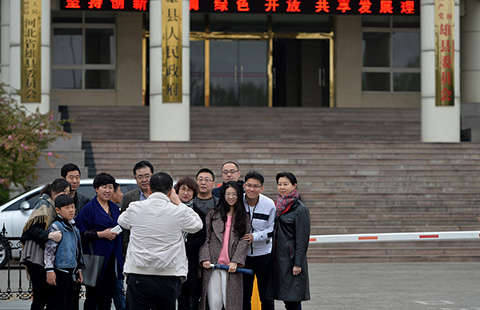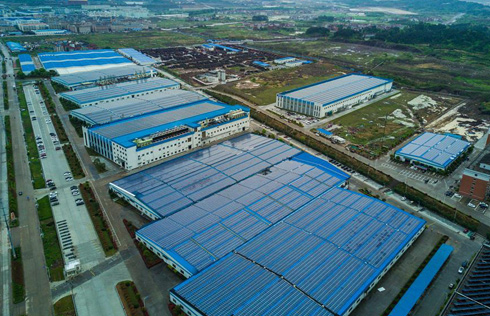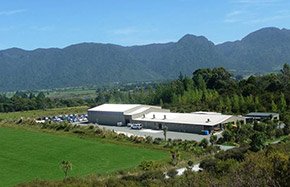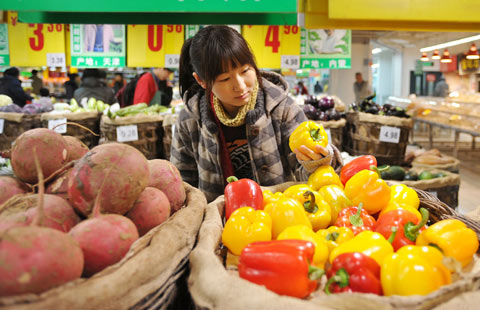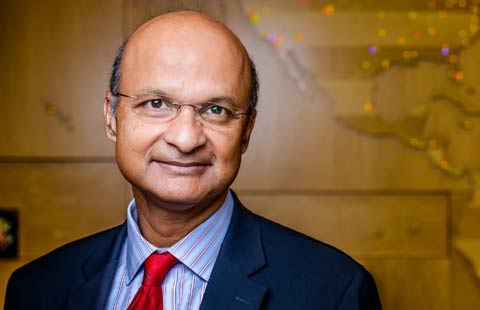Countdown to Belt and Road forum, China aims high for shared prosperity
BEIJING — Wang Jianyi, chairman of Chinese optical cable provider Futong Group, lauded the company's decision to expand into Thailand as a win-win move.
"In China, competition in the rapidly growing optical cable sector is squeezing profit margins, but in Thailand the product is still in short supply," Wang said.
By manufacturing products at their destination -- in FUTONG's case at the Thai-Chinese Rayong Industrial Zone, an industrial park on the east coast of Thailand -- Chinese firms are answering demand while expanding their own businesses.
At the Thai industrial zone, companies have spent $2.5 billion on building plants and facilities. These firms have generated $120 million in taxes and created more than 20,000 local jobs.
The industrial park is just one project under the Belt and Road Initiative, a grand trade and infrastructure plan proposed by China in 2013. Building upon the ancient routes, the modern belt and road will be a transnational network connecting Asia with Europe and Africa and promoting common development among all the countries involved.
The industrial zone in Thailand shows that China's ambitious plan more than just visionary or political rhetoric - it is reality, and the benefits are already being felt.
Forum to build more consensus
This time next month over 1,200 representatives, including the leaders of more than 20 countries and 50 international organizations, will gather in Beijing for the first Belt and Road Forum.
Attendees of the two-day forum, which will start May 13, will discuss cooperation on infrastructure, trade and energy development, according to China's Ministry of Foreign Affairs.
The forum comes at a time when, more than ever, countries must seek to reach broader consensus on how to achieve innovative and inclusive growth amid the sagging global economy.
One event to watch, in this regard, will be the round-table summit, as world leaders will discuss policy and strategy coordination.
A number of projects, deals and longer-term initiatives are expected to be pushed forward, while a mechanism for long-term cooperation will be discussed.
"The forum will build consensus among all participants, reinforcing the international community's confidence in the Belt and Road Initiative as well as for globalization itself," said Wang Yiwei, a senior researcher at Chongyang Institute for Financial Studies at Renmin University.
Counting on China plan
The world economy has still not fully recovered from the global financial crisis. Moreover, uneven resource allocation between developed and developing countries has only made matters worse.
One of the priorities of the Belt and Road Initiative is to help developing countries be heard and to explore a more equitable, reasonable and justified global governance system, said Ou Xiaoli, a senior official of the National Development and Reform Commission.
China, for its part, is willing to share its experience and expertise in infrastructure, trade and energy development with countries along the routes to achieve common prosperity.
According to a report co-authored by the Chinese Academy of Social Sciences (CASS) and China Bond Rating, investors tend to favor the energy, transportation and information technology sectors.
The value of all infrastructure projects in 66 countries and regions that fell under the initiative in 2016 was just under $500 billion, according to accounting firm PwC.
"Better infrastructure will help transport goods and talent from China to areas with resources and demand, and then there will be more projects in retail, real estate and other market-oriented sectors in countries with large populations," said Sean Prior, counsel at the law firm Mayer Brown JSM.
Fans around the globe
Openness, inclusiveness and mutual benefit are the hallmarks of the initiative and the source of its strong support, said Liu Jieyi, China's permanent representative to the United Nations (UN).
Since the initiative was proposed, it has won support from over 100 countries and international organizations, with the signing of nearly 50 inter-governmental agreements of cooperation.
In addition to developing-country partners, China signed a cooperation agreement with New Zealand in March, the first developed Western country to do so.
Since 2013, China has invested more than $50 billion in countries along the Belt and Road Initiative, according to a CASS report.
A total of 56 economic and trade cooperation zones have already been built by Chinese businesses in 20 Belt and Road countries, generating nearly $1.1 billion in tax revenue and creating 180,000 local jobs.
A recent resolution adopted by the UN also highlighted the role of the initiative in advancing regional economic cooperation, urging involved parties to help create a favorable environment for projects under the initiative by improving security, among other efforts.
The initiative offers "great potential" for advancing the UN's sustainable development agenda through economic growth, trade opportunities, job and income generation, infrastructure building and capacity building, said UN Under-Secretary-General for Economic and Social Affairs Wu Hongbo.
- China's Belt and Road Initiative benefits Australia: former Australian ambassador
- Russian President Putin confirms to attend Beijing's Belt and Road Forum
- Belt and Road initiative provides strong support for UN 2030 goals
- China's Belt and Road Initiative ushers in 'Globalization 2.0': Experts
- Belt and Road 'huge opportunity' for China, world: Experts







